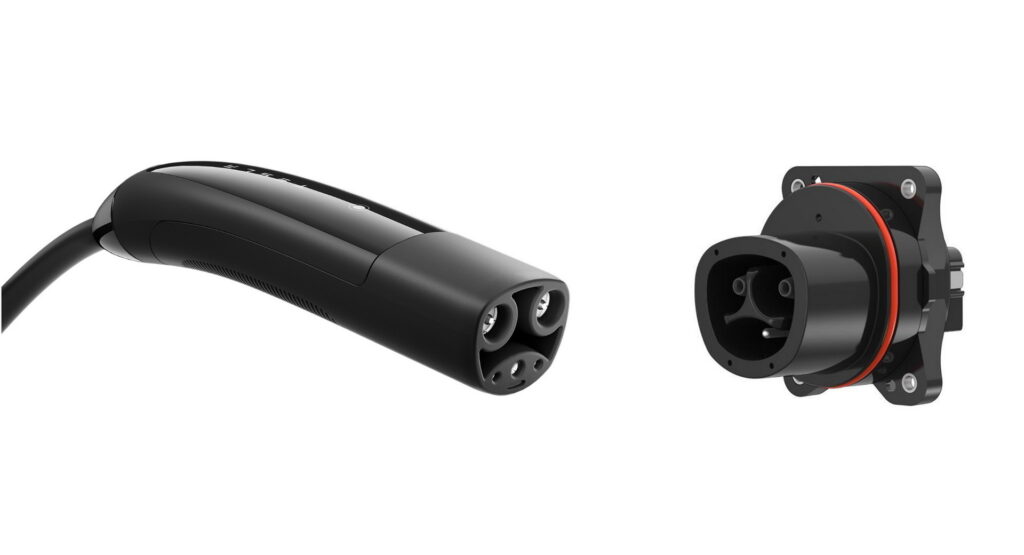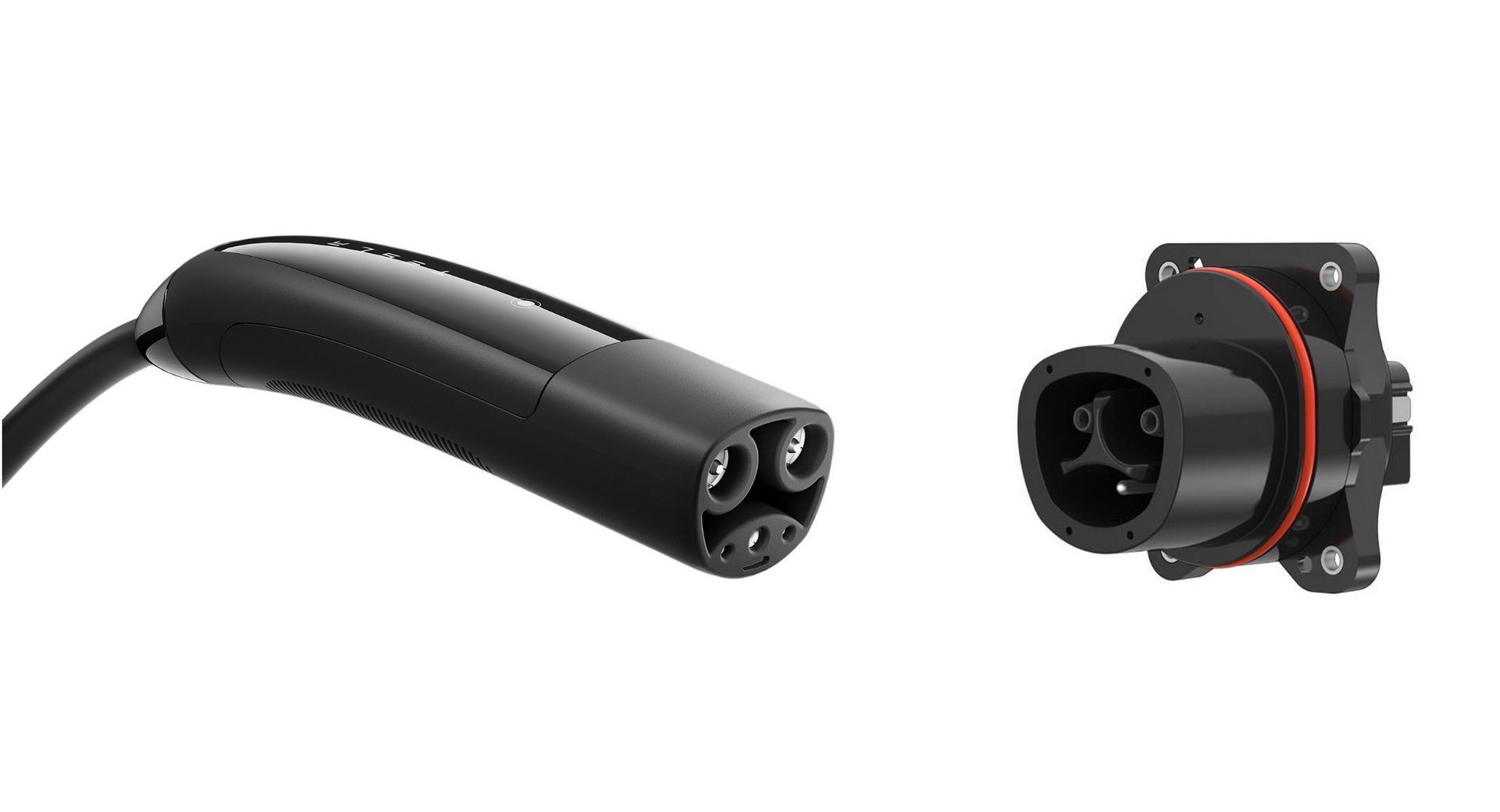Tesla announced today that it is inviting other charging network operators and vehicle manufacturers to use its electric car charging connec. The carmaker reports that third party operators already have plans to incorporate the plug into their stations.
The Tesla plug, which is now being called the North American Charging Standard (NACS), has, up to this point, been available exclusively on Tesla vehicles and through Tesla charging stations.
Other automakers have used the Combined Charging System (CCS) plug, which is larger and less powerful than Tesla’s plug, which the automaker claims offers AC charging and can handle up to one megawatt of electricity.
Read: Tesla Unveils $250 Charging Adapter Allowing Access To Third Party Stations In America
Even before the plug standard is offered to third-party operators, there are 60 percent more NACS plugs in North America than there are CCS plugs. There are also twice as many vehicles that accept the plug standard than there are CCS-equipped vehicles on the continent.
Tesla says that, for its own drivers, that will mean that they will soon be able to charge more widely without using an adapter. The automaker introduced the CCS Combo 1 Adapter in September as an accessory that costs $250. It can charge at speeds of up to 250 kW, the automaker said.
Coincidentally, EVgo Inc., one of the largest independent fast-charging networks in America, announced a new promotion for Tesla customers today. The provider is offering the automaker’s drivers a free three-month trial of the EVgo Plus subscription plan, which offers lower rates and free charger reservations.
In its press release, though, EVgo writes that customers will have to use the CCS Combo 1 Adapter to take advantage of the promotion. We have reached out to the company, and to Electrify America, another competing charging network, for comment about the use of NACS plugs and will update this story when we hear back.
Tesla, meanwhile, says that the design specifications for the NACS plug are easy to adopt and can be downloaded here. It is working with “relevant standards bodies” to codify the connector as a “public standard.”









